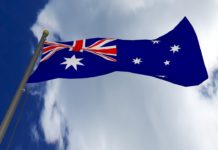Sydney’s Downing Centre Local Court has ordered Tabcorp to pay more than AU$30,000 (£16,606/€18,490/US$22,157) in fines and costs after it was ruled to have breached advertising rules in the Australian state of New South Wales (NSW).
austral An investigation by Liquor & Gaming NSW found that on 14 December 2019, a former Tabcorp betting account holder received a gambling advert offering bonus bets from Tabcorp on his Instagram account via Instagram Stories.
An investigation by Liquor & Gaming NSW found that on 14 December 2019, a former Tabcorp betting account holder received a gambling advert offering bonus bets from Tabcorp on his Instagram account via Instagram Stories.
This formed part of a Tabcorp-run advertising campaign on 13 and 14 December via Instagram Stories.
However, Liquor & Gaming NSW also found that details of 900 NSW residents who had closed their Tabcorp accounts had also been provided to Instagram’s parent company Facebook for the advertising campaign.
The NSW Betting and Racing Act states that it is illegal to publish gambling ads featuring an inducement to participate in gambling or open a betting account.
While Tabcorp said this was down to human error, Magistrate Erin Kennedy said she considered that some of the 900 may have closed their Tabcorp accounts as they had a gambling problem. As such, these people should not have been exposed to the ads, she said.
Kennedy also said Tabcorp’s history of compliance should not afford it any special treatment or reduced punishment. The ruling should serve as a general deterrent, as well as a specific deterrent to ensure the operator complies with state regulations moving forward.
The payment comprised an $18,000 fine and $12,276 in legal fees.
The ruling comes after Tabcorp earlier this month rejected reports that it could be subject to a takeover bid, in a proposal involving private equity firms and fronted by betting pioneer Matthew Tripp.
Newspaper reports in Australia suggested a number private equity firms had approached Matthew Tripp with the aim of launching a takeover bid. One was said to have tabled a fee of $9.0bn to acquire the entire Tabcorp business, with another considering a $3.0bn bid for Tabcorp’s TAB betting division.
Last month, Tabcorp also posted 5.7% year-on-year drop in revenue for the first quarter of its financial year, due to disruption caused by the novel coronavirus (Covid-19) pandemic.
Revenue for the three months to 30 September was down across its lotteries and keno and gaming divisions, which a 2.9% rise in wagering and media revenue failed to offset.












